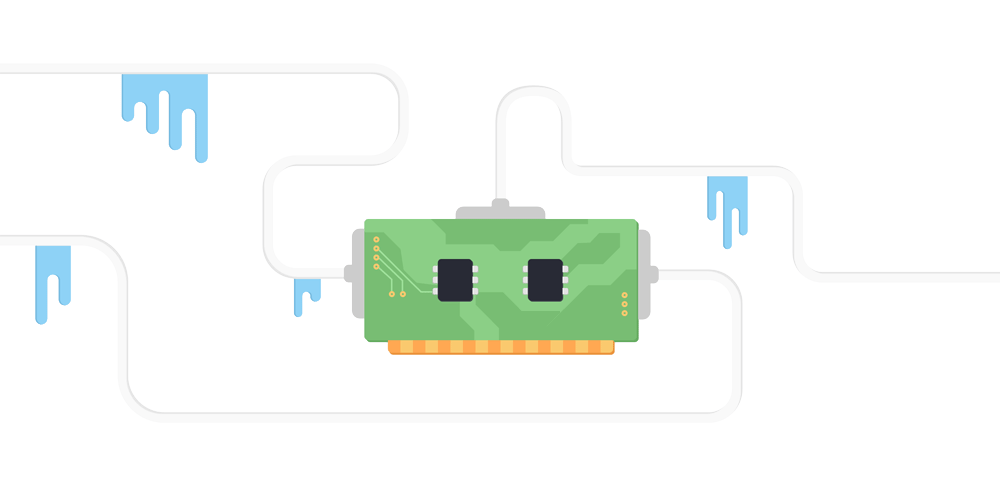Most people probably leave their phone on all the time. The only times their phone is off, is either when they don't want to be disturbed, or when the phone ran out of charge.
But most of the time, and it's safe to say, that most people will definitely leave their phones on whenever they can.
Smartphones are computers that are shrunk in size. They operate in roughly the same way as their bigger PC counterparts, but using much tinier components.
Those components are packed so densely inside a smartphone, and with the advancements of technology, they don't necessarily need any moving parts. Operating without a sound, smartphones don't need to rest.
They can be on as long as their users want them to, and they will do that just fine.
However, periodically shutting them them down, or restarting them, could actually benefit them in a long run.

For most people who leave their phone on, they probably had to restart or hard reset their phones only when there's a problem.
Like app freezing or crashing.
Obviously, that is the exact thing they should do in those situation. A hard rest, or even a simple restart, can clear up many bugs and issues without any other actions.
But beyond doing it when the phone is acting not like it should restarting a smart device every now and then could actually help prevent those issues in advance.
This happens because at every single restart, the phone will empty its memory and cache, allowing it to 'breath' better, making it able to run smoother and quicker.
That includes general performances, as well as improvements in speed of animations, and app loading times.
The most common reason why people should restart their phones once in a while, is because of what it is called the "memory leak" problem.
Memory leak is when the type of computer resource leaks because its system incorrectly manages memory allocations, in a way that a memory that is no longer needed, is not released. This memory leak can also happen when something is stored inside the memory, but can no longer be accessed by the running code.
Another way of saying it, the system uses a lot more memory that it actually needs.
What users will experience when their device is leaking memory, is a slowing performance.
This happens because the system that detects the depleting memory will try to reduce background activity or speed in which it needs to operate, in order to conserve the resources it has left.
In worse case scenario, the system will allocate too much of its available memory, that the system can no longer work correctly.
Apps will fail to load or crash, the operating system will stop responding to inputs, and more.
Fortunately, memory leak will only last until the system is restarted.
Why does a restart can solve this issue, is because a simple reboot will force a phone to clear everything it has in its memory.
When it starts to boot up, its memory is already emptied, allowing the phone to start up fresh.
Restarting also does some other important things, like wiping and reallocate thing VRAM the GPU uses, erases the pseudo-file system that is used to keep tabs on running hardware, and restarts the actual wireless radios.
While most phones, both Android and iOS devices, are doing an increasingly better job in managing their memory, a simple refresh could help give them a cleaner slate to work from.
But it should be noted that in most cases, iOS systems are better in dealing with memory leaks.
As for Android phones, as long as they are still using C and C++, which have no built-in garbage collection, memory leak will happen most often.
Read: Android And IOS Memory Management, And How Are They Different

To most people who keep their phones on all the time, they may think that restarting their phone once in a while is inconvenient and time consuming.
They are probably right, if their phone is still running smoothly.
But if the phone has been left on for a few days or more than a week with intensive usage, it's always a wise decision to at least take a short 5 minute to press that power button and restart the device.
Restarting is just one of the ways to ensure a better longevity of phones.
Sadly, it's an action that is often overlooked.
Besides keeping phones running happier, restarting can also affect battery life in a good way, because restarting allows the phone to regain memory, freeing its resources to properly manage its energy consumption.
And lastly, there’s also another reason to periodically restart or shut down your device: digital wellbeing.
People could all stand to spend a bit less time on their phones, and the minute or so it takes a device to fully reboot, is a good starting point for a screen-less life.
In conclusion, restarting a phone not only prolongs its life and keeps the user experience like it should, as it can also give its owner a bit of favor.
And all it takes, is just a little break.
Further reading: The '40-80 Rule' Battery Charging: Dealing With Lithium-Based Chemical Problems